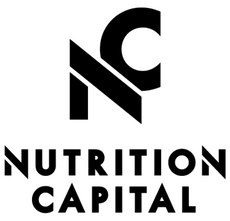Vegan protein supplements have gained popularity among those following plant-based (such as Vegan diets) or those who may have sensitivities to the more common protein such as Whey based protein's, and thus are looking for alternative protein sources.
These supplements provide a convenient and efficient way to meet protein needs without relying on animal-derived products. They are typically made from plant-based sources such as:
- Peas
- Rice
- Hemp
- Soy
- Or a blend of several plant proteins.
This summary will delve into the benefits of vegan protein supplements, the various types, and address some frequently asked questions.
Benefits of Vegan Protein Supplements:
- Complete protein source: Many vegan protein supplements offer a complete amino acid profile, providing all essential amino acids required by the human body.
- Easily digestible: Plant-based proteins are generally easier on the digestive system and cause fewer issues like bloating or gastrointestinal discomfort compared to some animal-based proteins.
- Environmentally friendly: Producing vegan protein supplements typically has a lower environmental impact, as it requires fewer resources and generates fewer greenhouse gas emissions compared to animal-derived proteins.
- Allergy-friendly: Vegan protein supplements are free from common allergens like dairy, lactose, and eggs, making them suitable for individuals with allergies or lactose intolerance.
Types of Vegan Protein Supplements:
- Pea protein: Made from yellow peas, this protein source is rich in branched-chain amino acids (BCAAs) and easily digestible.
- Rice protein: Extracted from brown or white rice, rice protein is hypoallergenic and provides a balanced amino acid profile.
- Hemp protein: Derived from hemp seeds, this protein source contains omega-3 and omega-6 fatty acids, making it a nutritious choice.
- Soy protein: Made from soybeans, this protein is one of the few plant-based sources considered a complete protein, containing all essential amino acids.
- Blended protein: Some supplements combine various plant proteins to create a more balanced amino acid profile and enhanced nutritional benefits. At Nutrition Capital, we like to recommend Plant Protein Blends due to the fact they contain a more balanced amino acid profile - suitable for those who don't consume meat based protein.
Frequently Asked Questions (FAQs) about Vegan Protein Supplements:
-
Are vegan protein supplements as effective as animal-based protein? Yes, vegan protein supplements can be just as effective as animal-based protein in supporting muscle building and repair when used as part of a balanced diet and exercise routine.
-
How much vegan protein do I need daily? Protein needs vary depending on factors such as age, gender, activity level, and overall health. As a general guideline, aim for 0.8 to 1.2 grams of protein per kilogram of body weight per day.
-
Can vegan protein supplements cause allergies? While vegan protein supplements are usually free from common allergens, individuals with specific allergies should carefully check the ingredients. Pea protein, for example, may trigger allergies in some people.
-
Are there any side effects of consuming vegan protein supplements? Vegan protein supplements are safe for most people. However, excessive intake may lead to digestive discomfort or minor gastrointestinal issues. It's essential to follow the recommended serving size.
-
Can vegan protein supplements help with weight loss? Vegan protein supplements can aid weight loss by promoting satiety and supporting muscle maintenance. However, they are not a magic solution and should be part of a balanced diet and lifestyle.
-
Are vegan protein supplements suitable for athletes? Yes, many athletes and fitness enthusiasts opt for vegan protein supplements to meet their protein needs, enhance recovery, and support their active lifestyles.
Remember that individual responses to supplements may vary, and it's always best to assess your specific needs and goals before incorporating any new product into your fitness routine.
Here at Nutrition Capital we advise you to consult a healthcare professional or a registered dietitian to ensure it aligns with your health and fitness goals. Additionally, individual responses to supplements can vary, so it's essential to monitor how your body reacts and make adjustments accordingly.

